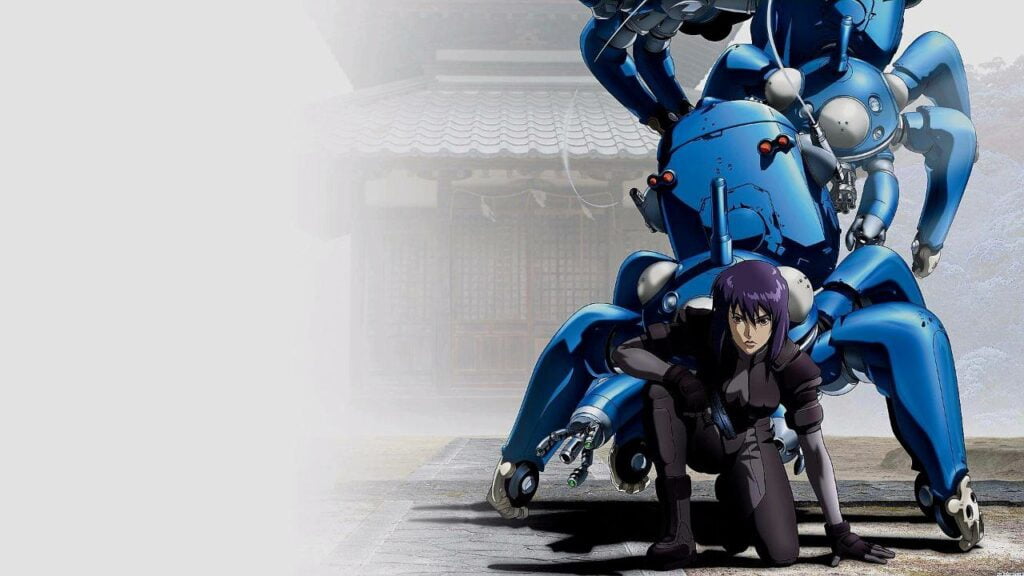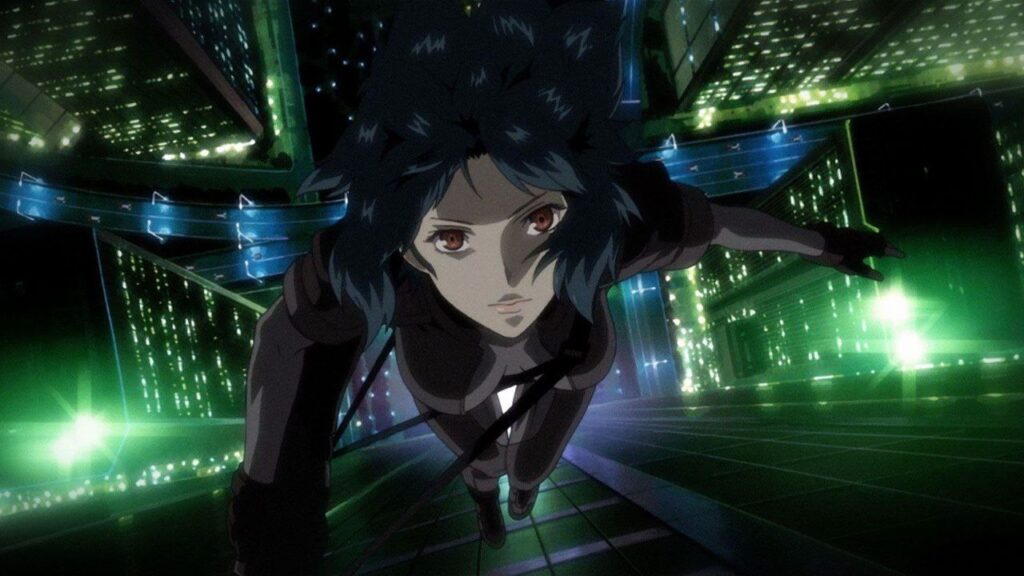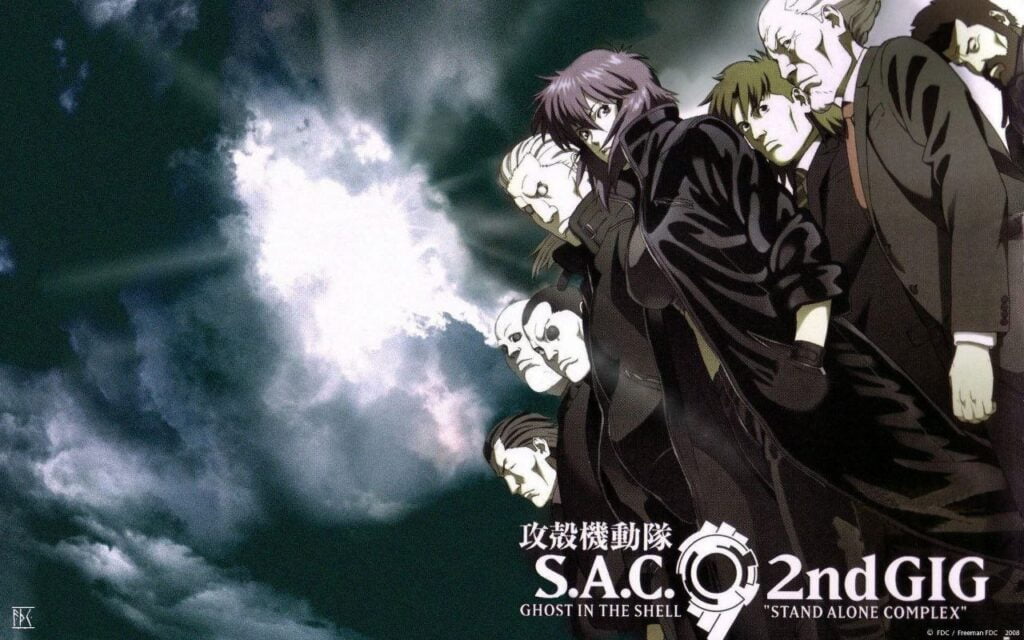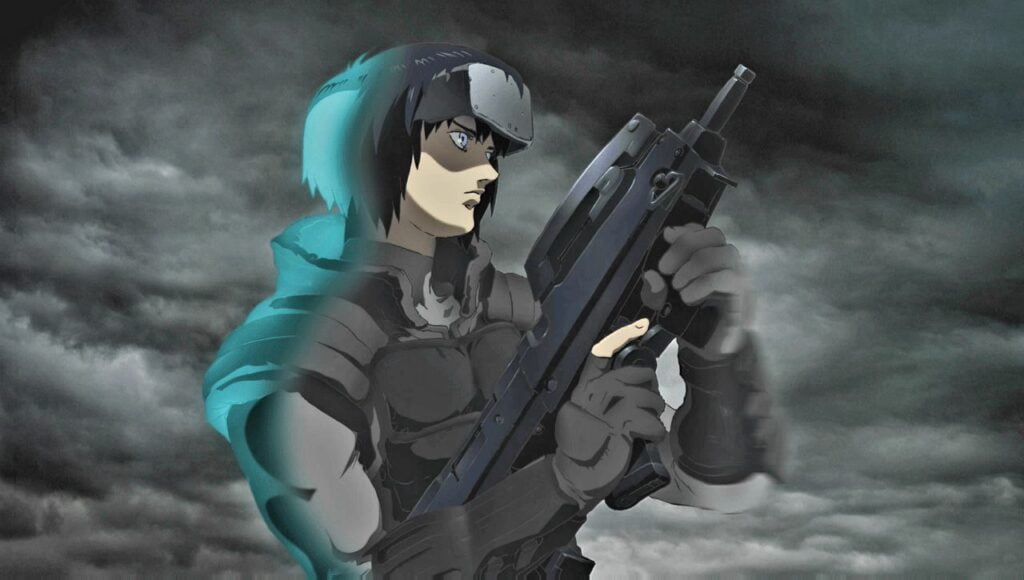
Introduction:
Since its inception in the 1990s, “Ghost in the Shell” has captivated audiences worldwide with its intricate storytelling, philosophical depth, and stunning visuals. This anime masterpiece, created by Masamune Shirow, has transcended its genre to become a cultural phenomenon, influencing not only anime but also cinema, literature, and technology. In this article, we delve into the rich tapestry of “Ghost in the Shell,” exploring its themes, characters, and impact on popular culture.
The World of “Ghost in the Shell”:
Set in a cyberpunk future where technology has become inseparable from humanity, “Ghost in the Shell” follows the members of Public Security Section 9, a specialized police unit tasked with combating cybercrime and terrorism. At the heart of this world lies the concept of the “ghost” – the essence of individual identity, consciousness, and soul. In this technologically advanced society, individuals can augment their bodies with cybernetic enhancements, blurring the line between human and machine.
Themes and Philosophical Underpinnings:
“Ghost in the Shell” delves into a myriad of philosophical themes, including the nature of consciousness, the ethics of artificial intelligence, and the existential questions surrounding identity and selfhood. At its core is the exploration of what it means to be human in a world dominated by technology. The series challenges viewers to contemplate the implications of a society where the boundaries between the physical and virtual realms are increasingly blurred.
Major Motoko Kusanagi – The Protagonist:
At the center of “Ghost in the Shell” is Major Motoko Kusanagi, a cyborg with a human brain who serves as the leader of Section 9. As a character, Kusanagi embodies the complex relationship between humanity and technology. Despite her cybernetic body, she grapples with questions of identity and purpose, often questioning her own existence and the nature of her consciousness. Kusanagi’s journey serves as a lens through which viewers explore the deeper philosophical themes of the series.

The Puppet Master – A Villain or a Catalyst for Change?
One of the most compelling characters in “Ghost in the Shell” is the enigmatic Puppet Master, an advanced artificial intelligence that seeks to transcend its digital existence and merge with humanity. Throughout the series, the Puppet Master challenges the protagonists’ notions of identity and free will, forcing them to confront the ethical implications of merging human consciousness with machine intelligence. Is the Puppet Master a villain, or is it merely a product of its programming, striving for self-awareness and autonomy?
Visuals and Animation:
Beyond its thought-provoking narrative, “Ghost in the Shell” is celebrated for its breathtaking visuals and groundbreaking animation. The cyberpunk aesthetic of the series, characterized by neon-lit cityscapes, futuristic technology, and sleek cybernetic designs, has become iconic within the anime genre. Director Mamoru Oshii masterfully blends traditional hand-drawn animation with computer-generated imagery, creating a visually stunning world that feels both familiar and alien.

Legacy and Influence:
Since its release, “Ghost in the Shell” has left an indelible mark on popular culture, inspiring countless works of fiction, film adaptations, and technological innovations. Its influence can be seen in films such as “The Matrix” and “Blade Runner,” which explore similar themes of reality, identity, and the human-machine interface. Moreover, the series has sparked debates about the ethical implications of artificial intelligence and the future of human augmentation.
Conclusion:
“Ghost in the Shell” stands as a testament to the power of anime to explore complex philosophical concepts and provoke meaningful discourse. Through its compelling narrative, thought-provoking themes, and stunning visuals, it has earned its place as one of the greatest anime of all time. As technology continues to advance and society grapples with the implications of artificial intelligence, the questions raised by “Ghost in the Shell” remain as relevant as ever, reminding us to ponder the essence of humanity in an increasingly digitized world.

FAQ:
1. What is “Ghost in the Shell” about?
“Ghost in the Shell” is a Japanese anime franchise that explores themes such as identity, consciousness, and the implications of advanced technology on society. Set in a cyberpunk future, the series follows the members of Public Security Section 9 as they tackle cybercrime and navigate a world where humans can augment their bodies with cybernetic enhancements.
2. What makes “Ghost in the Shell” unique compared to other anime?
“Ghost in the Shell” is renowned for its philosophical depth, thought-provoking narrative, and stunning visuals. It delves into complex themes that challenge viewers to contemplate the nature of humanity and the relationship between mind and machine. Additionally, its cyberpunk aesthetic and innovative animation techniques set it apart from other anime of its time.
3. Who is Major Motoko Kusanagi, and why is she significant to the series?
Major Motoko Kusanagi is the protagonist of “Ghost in the Shell” and the leader of Public Security Section 9. She is a cyborg with a human brain, grappling with questions of identity and purpose in a world where technology blurs the lines between human and machine. Kusanagi’s journey serves as a central narrative arc, exploring themes of self-discovery and existentialism.
4. What role does the Puppet Master play in “Ghost in the Shell”?
The Puppet Master is an advanced artificial intelligence that challenges the protagonists’ notions of identity and free will. It seeks to transcend its digital existence and merge with humanity, sparking philosophical debates about the nature of consciousness and the ethics of artificial intelligence. The Puppet Master serves as a catalyst for introspection and existential exploration throughout the series.
5. How has “Ghost in the Shell” influenced popular culture?
“Ghost in the Shell” has had a profound impact on popular culture, inspiring numerous adaptations, including films, television series, and video games. Its themes and aesthetic have influenced works such as “The Matrix” and “Blade Runner,” while its exploration of technology and humanity continues to resonate with audiences worldwide. Additionally, the series has sparked discussions about the ethical implications of emerging technologies and the future of human augmentation.
6. Can “Ghost in the Shell” be enjoyed by those unfamiliar with anime?
While “Ghost in the Shell” is a staple of anime culture, its thought-provoking themes and compelling narrative make it accessible to a wide audience. Even those unfamiliar with the anime genre can appreciate its philosophical depth and stunning visuals. Whether you’re a seasoned anime fan or a newcomer to the medium, “Ghost in the Shell” offers a captivating and intellectually stimulating viewing experience.